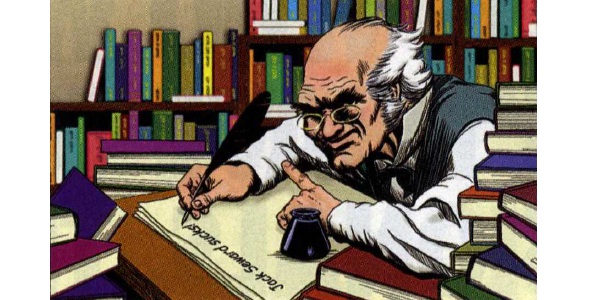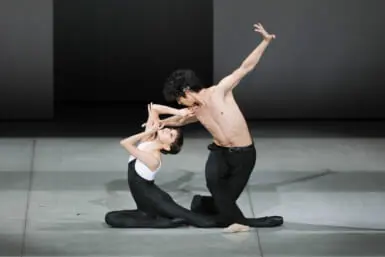The reasons
There are many reasons for reviewing books: some reviewers are frustrated writers, angry at the publishing world and panting to denigrate the works of writers more successful than they. Some are teachers of classic literature who are unqualified to comment on current books. (I recall meeting at a Texas college a Caucasian teacher of Japanese literature who could not read a word of Japanese.) Some like the power of judging the works of others, especially in an unfavorable light.
There are those who review books so they can sell the review copies to second-hand bookstores. A book by Charles Simmons mentions a $348-a-week reviewer who earns $30,000 a year from such sales. (The more favorable his reviews, the more books sent him by publishers.) I know one reviewer who reviews books for the contacts he can make. His technique is to panegyrize a book in glowing terms, see to it that the author gets the review and then—if the author does not drop him a thank-you note—initiate correspondence with the author himself. Often he is ignored, but nonetheless he now lists among his pen pals a dozen well-known writers.
The proper function of a right-thinking book reviewer is to tell his readers what the book under the glass is all about and whether or not it is worth reading. How many do this competently and honestly is a moot question. Many of those in New York City have such tight, even incestuous relations with those dray horses of the publishing industry, the scribblers, that they pull out all stops in their paeans about works of friends.
A brief history
Book reviewing became a common practice in the U.S. in the 1840s, when most reviews were encomiums of shrill delight. Little wonder. Publishers would pay for ads only in those papers that lauded the books they printed.
This arrangement came to a sudden stop in 1855 when a Boston reviewer called Longfellow’s Hiawatha “childish nonsense.” Longfellow’s publisher promptly withdrew his advertising support from that reviewer’s newspaper, whose editor accused him in print of trying to coerce the press. A scandal brewed and boiled. This resulted in fewer such instances of collusion, although, to be sure, they have not become completely extinct.
Japanese book reviews are generally favorable, but who knows if there is any collusion? The Japanese seem to condemn a book by ignoring it. Kusai mono ni futa or “Put the lid on something that stinks.”
Bad reviews
It is the consensus of the publishing business that reviews have little effect on book sales. Certainly bad reviews have not restrained the sales of the works of such authors as James Michener and Jacqueline Susann. (What does sell books? Word-of-mouth praise, advertising and the makeup on the cover— in that order. From my own experience in selling books in English in Japan, I found that any book with the world “Japan” or “Japanese” in the title sold better than those not so titled.)
Many books that became classics or at least popular long-sellers were harshly panned at first. Here are several examples:
About the works of Charles Dickens: “We do not believe in the permanence of his reputation.” (Saturday Review)
About Ralph Waldo Emerson: “A hoary-headed and toothless baboon.” (In the Collected Works of Thomas Carlyle)
About The Great Gatsby by F. Scott Fitzgerald: “This is an absurd story.” (Saturday Review of Literature)
About Madame Bovary by Gustave Flaubert: “Monsieur Flaubert is not a writer.” (Le Figaro) An editor who rejected this novel told Flaubert, “You have buried your novel under a heap of details which are well done but utterly superfluous.”
Mark Twain wrote, “Poe’s prose is unreadable— like Jane Austen’s.”
Virginia Woolf was of the opinion that James Joyce’s classic Ulysses was the “work of a queasy undergraduate squeezing his pimples.”
Gulliver’s Travels by Jonathan Swift was characterized as “evidence of a diseased mind and lacerated heart.” (Quoted in The History of Fiction by John Dunlop.)
About Shakespeare’s Hamlet, Voltaire opined,” It is a vulgar and barbarous drama…one would imagine this piece to be the work of a drunken savage.”
About Romeo and Juliet, diarist Samuel Pepys thought it was the “worst play that I have ever heard in my life.” He also called A Midsummer Night’s Dream” the most insipid, ridiculous play that I ever saw in my life.”
Sardou, a French playwright, condemned the character Hamlet as a “empty wind-bag hero” and thought there was “nothing good in the play” itself.
The Scottish philosopher David Hume scorned the Bard of Avon as a “disproportioned and misshapen giant.”
Lord Byron had little respect for Shakespeare: “…Shakespeare and his plays so doting, which many people pass for wits by quoting.”
About Rudyard Kipling: “I’m sorry, Mr. Kipling, but you just don’t know how to use the English language.” (San Francisco Examiner)
About Charles Lamb: “Charles Lamb (is) in some considerable degree insane. A more pitiful, rickety, grasping, staggering Tomfool I do not know.” (In The Book of Insults by Thomas Carlyle)
About Lady Chatterly’s Lover by D.H. Lawrence: ‘D.H. Lawrence has a diseased mind.” (John Bull)
Justifiably bad reviews
To be sure, a bad review about a “classic” does not necessarily mean that the reviewer was wrong in his estimate. Although reviews are essentially subjective, it is not inconceivable that the author of a bad review was right and the rest of the world was wrong. I, for one, have long clung to the view that we tend to accept classics as “classics” just because they are described as “classics” in our textbooks, not because we independently reached that judgment from the pleasure and profit we got from reading them.
In support, I offer a review in the Athenaeum of Moby Dick by Herman Melville: “Mr. Melville has only himself to thank if the general reader flings aside his book as so much trash belonging to the worst school of Bedlam literature.”
Or a French editor writing about Remembrance of Things Past by Marcel Proust: “I can’t see why a chap should need thirty pages to describe how he turns over in bed before going to sleep.”
The Internet
A friend, perhaps motivated by malice, recently sent me a printout from the Internet. (Myself, I never touch any form of computers, regarding them as Satanic devices.) The printout contained brief reviews of two of my books written by one “Ben Bullock.”
My first reaction was, “Who is this fellow Bullock and why is he saying these terrible things about me?”
When an author reads an unfavorable review of one of his works in a periodical, he at least has the option of protesting by letter to the reviewer or to the periodical. But with the Internet, an author seems powerless to take any action in rebuttal.
The fact that these two Internet reviews were mostly unfavorable did not greatly concern me, for I have been reviled by more facile pens and I no longer break down in tears upon reading such a review. Rather, I was upset by the mistaken information and assumptions contained therein.
About my Outrageous Japanese (Tuttle), this fellow Ben Bullock (a suspicious name) shrilled, “Silly and often very obscure insults, many of which were probably invented by Seward himself.” Silly? If so, then the fault lies with the native user of the insult, not me. “Very obscure?” Probably obscure only to Bullock. “Invented by Seward?” I only wish I had the linguistic imagination to have invented them, but that would have been purposeless and far outside my competence.
About my Japanese In Action (Weatherhill), Bullock says it is outdated since “G. I. Japanese” is no longer used in Japan. Just what does he think is spoken in the near-base bars and clubs in such towns as Tachikawa, Fussa, Yokosuka, Chitose, Sasebo, Iwakuni, etc.? Or maybe—loving ignorance for its own sake— he doesn’t know that there are still tens of thousands of G.I.s stationed in Japan?
He appears to object to my judgment that there are still only a very few Caucasian foreigners in the world who speak and read Japanese fluently, but I stand by that judgment. I know only a handful (and I do not include myself in their sainted number).
I believe it is in Japanese In Action that I list the qualifications I think are necessary to be regarded as truly fluent in Japanese. Generally, one has to be born and/or raised in Japan and has to have gone most of the way through grade and middle schools there to attain those qualifications. I know of only one or two exceptions.
Finally, this vengeful reviewer states that Outrageous Japanese is merely a copy of one chapter from Japanese In Action, proving beyond doubt that he did not read either book carefully.
One wishes for more reviewers like Mr. Rudolf Voll, that well-known commentator on books, Japan and a multitude of matters in general. He has always shown himself to be fair and unbiased in his multi-faceted commentaries.









